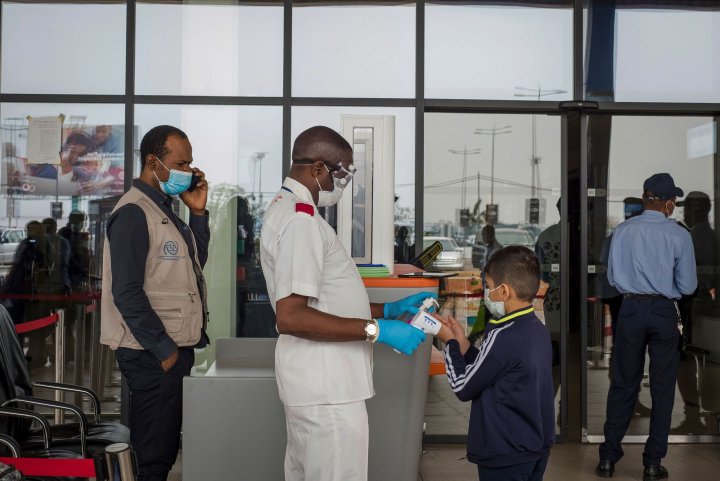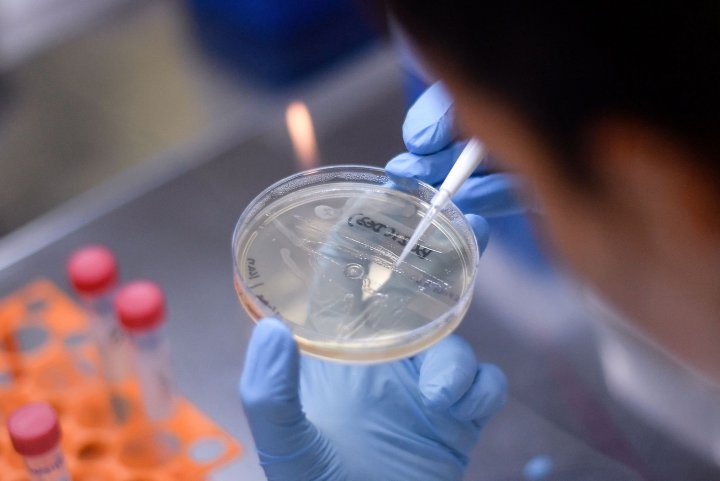Africa Covid-19 update: 18:30 WAT on Monday 24 August (19:30 CEST)
Latest figures published by Johns Hopkins University.
Worldwide
Cases: 23,499,048
Deaths: 809,834
Recoveries: 15,170,702
South Africa
Cases: 609,773
Deaths: 13,059
Egypt
Cases: 97,340
Deaths: 5,262
Nigeria
Cases: 52,227
Deaths: 1,002
Covid-19 puts Sierra Leone’s expectant mothers at further risk
Binta Kamara, a nurse at the Kabala government hospital in northern Sierra Leone, says patient turnout is a problem.
“Patients are refusing to come to hospital. We have to go out in surrounding homes to encourage them to visit health centres. Before the virus, we used to get close to 100% turnout, but now, we’re struggling to hit 50%.”
Misinformation plays a significant role in this, Kamara says. “There is lots of information flowing on social media and many of these [stories] are fake news. It makes people fearful of health facilities.”

Congo Covid-19 update
Two hundred new Covid-19 caseswere identified out of 4,759 samples tested today. This brings the cumulative number of confirmed cases to 3,089. To date, 1,755 patients have recovered and been discharged, including one in the past 24 hours. The number of active cases is 1,322 and 12 deaths. The latest fatality is a 71-year-old Rwandan.
The new cases are in Kigali (164) from mass testing in Kigali markets, Rusizi (29) testing in high-risk groups, Rubavu (5), Huye (2); heightened vigilance is required everywhere. All active cases are in isolation in stable condition.
NICD says it will be difficult to predict a second wave of Covid-19
The National Institute for Communicable Diseases (NICD) said South Africa's infection rate has entered a downward spiral. It said there are no signs there will be a surge due to the easing of lockdown regulations.
South Africa, with 609,773 confirmed cases, has the fifth-highest number of Covid-19 cases in the world and has reported thousands of cases daily, since May. The institute also said it's difficult to predict if there will be a second wave. It said South Africa's Covid-19 'R-Naught' number is down to 1.1. In March, three people were at risk for every case, this moved to five by the end of April.
Nairobi informal area businesses feel Covid pinch
More than 80 percent of retailers in Nairobi's informal settlementsreported demand and supply challenges last month amid supply chain disruptions caused by Covid-19, according to a recent study, Business Insider reports.
Geneva-based think tank Latest Impact Initiatives believes a majority of retailers attribute the disruption to an increase in prices of items (53%) and decrease in demand for commodities (46%). Other reasons include lack of money to restock (33%), a lack of commodities from suppliers (20%) and Covid-19 movement restrictions (eight percent),” the study said.
Covid-19 situation escalating in Uganda
Uganda's Minister of Health Ruth Aceng admitted that the Covid-19 situation in the country is “rapidly changing” and has asked the government and scientists to reconsider their strategy.
Over the weekend, Uganda recorded its highest number of single-day cases after several inmates at a prison tested positive for the virus. The country recorded 318 cases, the highest daily number since the index case was registered on 21 March.
“The Covid-19 situation is rapidly changing in Uganda. Covid-19 is real, it’s highly infectious and it kills. It’s our responsibility to stop this catastrophe,” Aceng said.

WHO says 172 countries engaging with global Covid-19 vaccine plan
Some 172 countries are engaging with the WHO-led COVAX plan designed to ensure equitable access to Covid-19 vaccines, the World Health Organization said on Monday, but more funding is urgently needed and countries should now make binding commitments. "Initially, when there will be limited supply (of Covid-19 vaccines), it's important to provide the vaccine to those at highest risk around the globe," the WHO's director general Tedros Adhanom Ghebreyesus told a media briefing.
WHO urges countries to join forces in vaccine plan
The World Health Organization has urged countries to join its plan to ensure equitable access to Covid-19 vaccines so they can work together in a coordinated manner. Bruce Aylward, the WHO's emergencies chief, told a news briefing that "the critical thing is to ensure that some vaccine gets to all countries as early as possible".



0 Comments
Drop your comment